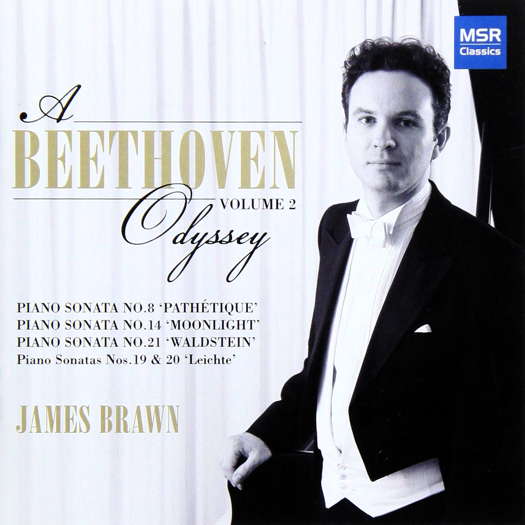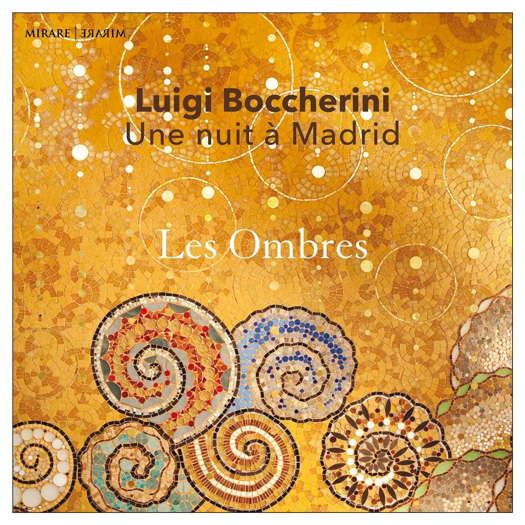 SPONSORED: CD Spotlight. Perfect Indeed - More Beethoven from James Brawn, recommended by Andrew Schartmann.
SPONSORED: CD Spotlight. Perfect Indeed - More Beethoven from James Brawn, recommended by Andrew Schartmann.
All sponsored features >>
 VIDEO PODCAST: Come and meet Eric Fraad of Heresy Records, Kenneth Woods, musical director of Colorado MahlerFest and the English Symphony Orchestra and others.
VIDEO PODCAST: Come and meet Eric Fraad of Heresy Records, Kenneth Woods, musical director of Colorado MahlerFest and the English Symphony Orchestra and others.
 DISCUSSION: What is a work? John Dante Prevedini leads a discussion about The performing artist as co-creator, including contributions from Halida Dinova, Yekaterina Lebedeva, Béla Hartmann, David Arditti and Stephen Francis Vasta.
DISCUSSION: What is a work? John Dante Prevedini leads a discussion about The performing artist as co-creator, including contributions from Halida Dinova, Yekaterina Lebedeva, Béla Hartmann, David Arditti and Stephen Francis Vasta.

Rococo Charm
Boccherini quintets, heard by GERALD FENECH
'These are finely polished scores and Les Ombres oblige with some sparkling virtuosity that is a pleasure for the senses.'
Born in Lucca, Italy, into a musical family in 1743, Luigi Boccherini was the third child in the family. At age five the young boy received his first musical lessons from his father Leopoldo. At age nine he furthered his studies with Abbé Vanucci, music director of a local cathedral at San Martino. Aged thirteen Luigi was sent by his father to study in Rome, and in 1857 he and Leopoldo went to Vienna, where the boy was employed as a musician at the Burgtheater.
In 1761 Boccherini went to Madrid, entering in 1770 the employ of Infante Luis Antonio of Spain. This move was to prove vital in the composer's life. Under this royal patronage Boccherini's career flourished, but when Charles III disapproved at a passage in a new trio and ordered the composer to change it, trouble broke out. Irritated at this interference, Boccherini doubled the passage instead, causing his immediate dismissal.
Don Luis, the King's younger brother, remained faithful to the composer and, with his help, Boccherini was able to reach the little town of Arenas de San Pedro in the Gredos Mountains in Avila. Later he settled in the nearest town of Candeleda. It was here that Boccherini wrote many of his famous works. Later patrons included Lucien Bonaparte, French Ambassador to Spain, and King Friedrich Wilhelm II of Prussia, himself an amateur musician.
The composer fell on hard times when by 1805 his Spanish patron and practically all his family were all dead. In May of that same year Boccherini also died, survived by his two sons. His body was buried in Madrid until 1927, when Benito Mussolini had his remains repatriated and buried in his native Lucca.
His output is substantial, particularly where chamber music is concerned. Indeed, he wrote over a hundred string quintets for several instruments, a dozen guitar quintets and nearly a hundred string quartets. His orchestral music includes thirty symphonies and twelve virtuoso cello concertos. Boccherini's works have been catalogued by the French musicologist Yves Gerard (1932-2020) in the Gerard catalogue published in London in 1969, hence the G numbers applied to his output.
Neglected for almost two centuries, Boccherini's works have been gaining more recognition since the late twentieth century, and this recording should further increase interest in the works of this wonderful composer.
Listen — Boccherini: Adagio (Quintet No 7 in E minor, G 451)
(track 4, 0:02-0:53) ℗ 2021 Mirare :
The five quintets on this issue are characterized by Rococo charm, lightness, optimism and a wealth of melodic and rhythmic invention that are a cause of constant delight.
Listen — Boccherini: Allegro e con un poco di moto (Quintet in G minor, Op 19 No 2)
(track 1, 0:02-0:54) ℗ 2021 Mirare :
The 'Fandango' Quintet, in particular, bubbles with the utmost joy of life.
Listen — Boccherini: Fandango (Quintet No 4 in D, G 448)
(track 14, 4:42-5:41) ℗ 2021 Mirare :
These are finely polished scores and Les Ombres oblige with some sparkling virtuosity that is a pleasure for the senses. A brilliant addition to the Boccherini discography, sumptuously recorded and presented.
Copyright © 15 October 2021
Gerald Fenech,
Gzira, Malta

CD INFORMATION - LUIGI BOCCHERINI: UNE NUIT À MADRID
MORE CLASSICAL MUSIC ARTICLES ABOUT ITALY


